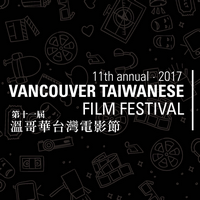The Best Secret Agent
天字第一號
Wanshou Film Company (萬壽影業公司)
Director: Zhang Ying (張英)
Screenplay: Du Yunzhi (杜雲之)
Cinematography: Lin Zanting (林贊庭)
Sound: Li Lin (李林)
Editor: Shen Yekang (沈業康)
Music: Li Guotian (李國添)
Lyrics: Ye Junlin (葉俊麟)
Cast: Bai Hong (白虹), Ke Junxiong (柯俊雄), Ke Youming (柯佑民), Tian Qing (田清), Liu Qing (柳青), Hu Dou (戽斗)
1964 - Black and White - 102 minutes
Synopsis
During the Sino-Japanese War (1937–1945), Cuiying (Bai Hong) flees with her father (Ke Youming) from the Japanese invasion. Unfortunately, Cuiying’s father dies on the road. Cuiying arrives in Shanghai alone and works as a singer in a club, where she meets Lingyun (Ke Junxiong) and Zhaoqun (Tian Qing). Zhaoqun happens to be Lingyun’s uncle. Moreover, Zhaoqun is rich and powerful because he works for the Japanese government. Although Cuiying falls in love with Lingyun, she leaves him and marries Zhaoqun instead. Lingyun is broken-hearted and decides to study abroad. Upon Lingyun’s return from the UK, he begins working for Zhaoqun. Zhaoqun wants Lingyun to marry his daughter, Aili (Liu Qing), and Cuiying reluctantly agrees to act as a go-between for the young couple. Meanwhile Zhaoqun’s work is constantly sabotaged by the Chinese resistance, led by Secret Agent Heaven No.1. Therefore, it becomes the top priority of Zhaoqun’s subordinate, Captain Wan (Hu Dou), to capture the enemy. But who is Secret Agent Heaven No.1?
Commentary
‘The first Taiwanese-language spy film produced in Taiwan, The Best Secret Agent is a remake of a 1945 movie of the same name that caused a sensation in Shanghai. Fueled by a dog-eat-dog plot and the changing faces of the […] protagonist, the film has been likened to a Taiwanese version of the 007 movies. The film broke box office records in Taiwan and kick-started the popularity of Taiwanese-language spy movies for years to come.’
It is particularly interesting to watch The Best Secret Agent (a.k.a. Secret Agent Heaven No.1) today. While audiences in the 21 st century have become used to spy thrillers that are dark, intense, and full of intrigue and sometimes ultraviolence, the earliest Taiwanese-language spy movie has much more innocent charm. However, it is even more fascinating if we take into account the historical context in which The Best Secret Agent was produced. It may challenge some of our assumptions regarding early Taiwan film history.
When the Kuomintang (KMT, or Nationalist Party) fled to Taiwan after their defeat by the Communists in 1949, the government strongly promoted Mandarin, the Republic of China’s national language, to enhance national unity on the island. As Mandarin cinema became increasingly popular from the early to mid-1960s, the number of Taiwanese-language films began to decline. Hence it is often believed that there were two separate and adversarial local film industries – Mandarin versus Taiwanese – in the 1950s and the 1960s.
Yet upon closer examination, the interactions between the local-dialect and the state-owned (thus Mandarin-oriented) film sectors were much closer than one might think. Due to lack of resources in the early days, all local filmmakers needed to rely on the state-owned studios for a range of technical support, for example, in sound recording. In the meantime, since the employees of the state-owned studios only had the opportunity to make one or two Mandarin-language movies each year prior to the mid-1960s, many were eager to be involved on a private and commercial basis in producing Taiwanese-language cinema. The director of The Best Secret Agent, Zhang Ying (1919–2013), was one such example.
Zhang Ying was born in Sichuan Province. He was involved in filmmaking in Shanghai in 1947 and was assigned to shoot footage in Taiwan in 1948 for a film project, The Legend of Alishan (Alishan Fengyun). The KMT lost Shanghai before Zhang could return to the mainland. Consequently, Legend of Alishan was taken over by Wan Xiang Motion Picture Corporation in 1949 and became the first film released in Mandarin on the island. Meanwhile, Zhang Ying remained in Taiwan and became a civil servant responsible for the film department within the Ministry of Education. He not only helped local filmmakers with sound recording, film printing and cinematography, but also directed Taiwanese-language films such as Little Lovers Escape (Xiao Qingren Taowang, 1958), which won him the Best Director at the 1958 Taiwanese Film Festival, and The Best Secret Agent in 1964. His children’s film, Fantasy of the Deer Warrior, is included in our Taiwan’s Lost Commercial Cinema season.
Despite being set in mainland China during the Sino-Japanese War, local audiences enjoyed and embraced The Best Secret Agent when it was first released. Zhang’s film company invested NT$270,000 and recouped NT$1,300,000 after screening in more than ten movie theatres in Taipei. It was a Taiwanese box office sensation at the time.
Text source and photocredit: https://taiyupian.uk/




